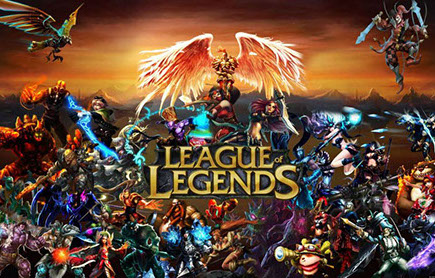
E-sports vs game addiction
By Evaldo Leong, Yoyo Siu, Marshall Yin, Katelynn Wang


E-Sports, a game played interpersonally in the form of video games has become trendy. Out of curiosity of how it develops, we look into the psychological states of different people and tried to read the essence and influence of E-sports.
E-sports is said to emphasize intelligence, technology, reaction and physical strength. In 1997, the first professional E-sports league was set up by Angel Munoz, an American. After that, E-sports competitions were held in Europe and other places with prizes that could be up to $1 million. An E-sports culture has gradually formed. Since then, many countries have begun to develop E-sports.
In China, the State General Administration of Sport approved E-sports as a formal sport in 2003 which then has been regarded as a new industry. In the first half of 2017, China's game industry report showed that China's E-sports sales revenue exceeded RMB35.99 billion, with an estimated annual earning of over RMB90 billion. In some universities in the UK, the US and China, E-sports is not only a competition, but also a spectator sport. For example, a university in Illinois set up an E-sports scholarship program for 30 students in 2014. The award-winning students can receive tens of thousands of dollars in tuition fees, room and board, and conduct E-sports training on campus.
In August 2018, E-sports was included in one of the Asian games demonstration projects held in Jakarta, Indonesia. It is really likely that someday E-sports will become a "mainstream sport" for young people. Views about E-sports vary in society. We interviewed two groups of people with different attitudes, one is E-sports players, the other is people who do not like to play games.

One of the writers, Katelynn, shared a story of her cousin. "My cousin, a girl of grade 7 in an international school, is very addicted to mobile games. When I asked her why she was fond of it, she told me that it was the only way of entertainment in her life. The girl kept her academic grade outstanding at school, while being banned from using WeChat and other social media by her parents. Without a second choice to entertain herself after class, she naturally turned to play games."
The reason why people get obsessed with games, on the one hand, is their pressure. Students like Katelynn's cousin, and working adults are pushed hard nowadays, while game playing becomes a way of easing stress. On the other hand, they immerse themselves so much in the virtual world that they refuse to come out to reality. The rewarding system also encourages them to stick to playing, which is why nerds make it hard to quit.
Many people play games to kill time because they do not have other hobbies or interest to assume their energy. A person who has other activities as interest will naturally pay more attention to and spend time on it. For example, professional athletes usually spend less time on video games. The best entertainment for them is doing exercise.
"As a friend of sports lovers, I totally know that if I am too fond of playing games and am addicted to them, I will be in an awkward position for those around me who do not play games. That's why I do not like the games," said one recent graduate.
There is a mechanism for "attention" in humans, which always requires a clear goal. Those who love to play games aim at victory, and regard winning games as their goals. Since a human mind is constantly looking for a goal for attention, we get upset when we lose a goal. Playing games makes it easier for the brain to work harder because it is a very hard job.
From the perspectives of people who do not like games, they probably think that they are wasting their time and life. A great deal of time will be spent playing games without learning something useful. It is true that games can be played occasionally to relax, but once the brain takes too long to rest, it eventually becomes empty. But professional gaming should not be included, which is actually profitable.
With the rapid development of E-sports, many problems are exposed. An obvious one is young people's addiction to playing E-sports, making them neglect their studies; According to a media report, five students from Huazhong University of Science & Technology, which is one of the national key universities in China, failed to graduate because they received very low grades due to their addiction to online games. The second problem is that many relationships are destroyed. It is easy to lose interest in real life, and refuse to communicate with the "real world". Some couples often quarrel because one of them is addicted to playing games. The third problem is a health hazard. Medical professionals point out that long term participation in E-sports will make lumbar and shoulder strain and so on.
But E-sports also bring some benefits that we cannot ignore. According to the 2017 global E-sports market report released by Newzoo, a Dutch market research company, the related revenue will increase to US$6.96 billion from US$100 million, a 41.3 percent from 2016's revenue of about US$493 million. The revenues mainly come from advertisers, sponsors, tournament tickets and game issuances (excluding merchandise and related activities).
The related new businesses are emerging as well, such as player coaches, game development business, game analysts and so on. The most important is that E-sports is forming the new sport culture. The Asian Games of Jakarta in 2018 had six E-sports matches. The development of E-sports seems promising if appropriate policies are in place to prevent addiction.

BACK
Copyright © Umac Bridges Fall 2018